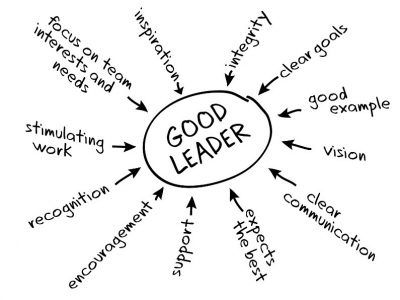Widgetized Section
Go to Admin » Appearance » Widgets » and move Gabfire Widget: Social into that MastheadOverlay zone
Leadership – Desiring, Perspiring and Inspiring
The views expressed are those of the author and do not necessarily reflect the views of ASPA as an organization.
By Chuck Wallace
February 26, 2018
Congratulations! Here you are. You finally achieved what you’ve desired for a very long time. You now occupy a position of leadership. It is another accomplishment along the way towards achieving the career goals you set for yourself since your early years in college, perhaps as far back as high school. In her article Five Questions You Should Ask Before Accepting A Management Position, Stephanie Taylor Christensen reveals, “To most people, moving into a management role seems like a natural rite of passage when climbing the career ladder. But for all its impressive-sounding perks, joining those ranks may not necessarily upgrade your job satisfaction: According to a 2015 Gallup poll, only 35 percent of U.S. managers actually feel engaged in their jobs.”
Your new position begins with excitement but can quickly turn to misery when you perceive failure in your quest to move forward in a positive direction as fast as you had planned and expected. As you attempt to initiate change, your proposals might be met with resistance because you’ve challenged the status quo. Subordinates complain there were never issues with your particular department in the past. They grumble and criticize the modifications you’ve proposed and question your ability to lead. In a short time, you begin doubting your abilities as a manager and leader, and dread the idea of going to work each morning.
How do you change the dynamics and situation?

collaborative-coaching.com
Your first step is to remain optimistic about yourself, your abilities and in the changes and direction you believe will forge a better future. Noam Chomsky, the American linguist, cognitive scientist, historian, social critic, and political activist states, “Optimism is a strategy for making a better future. Because unless you believe that the future can be better, it’s unlikely you will step up and take responsibility for making it so. If you assume that there’s no hope, you guarantee that there will be no hope…The choice is yours.”
Inclusion of your subordinates in the planning of whatever course you believe needs to blazed will help them take personal interest in the movement. Chomsky further asserts, “Don’t be obsessed with tactics but with purpose. Tactics have a half-life.” Purpose and a common goal is what can make your project personal to those you are attempting to lure away from the status quo, further reinforcing a positive forward movement.
The status quo will become your primary barrier to change, not your inexperience. According to Peter Diamandis, Chairman of the X Prize Foundation, “Many have built their careers buttressing the status quo, reinforcing what they’ve already accomplished, and resisting the radical thinking that can topple their legacy – not exactly the attitude you want when trying to drive innovation forward.” Laurence J. Peter, author of the 1969 best-selling book, The Peter Principle, broadens this thought asserting in his book that, “Bureaucracy defends the status quo long past the time when the quo has lost its status.”
You will always encounter opposition when attempting to create change. The status quo is a place of comfort for many and the longer the status quo has been in place, the more uncomfortable it becomes to step away from the norm. As a manager and leader, you must not accept the adequacy of the status quo or what Chomsky maintains as choosing to live in a world of “comforting illusion.”
Opportunity has fallen upon your doorstep. You are now in a position to guide and initiate a new movement toward progress, away from the status quo and adequacy. Once you believe that, and are willing to face the consequences good or bad, for attempting to make a significant change you will begin your pathway toward becoming a true leader.
Progress may be slow, but progress will be made just because of the attempt to distance yourself from the status quo. Noam Chomsky articulated, “If you look at history, even recent history, you see that there is indeed progress… Over time, the cycle is clearly, generally upwards. And it doesn’t happen by laws of nature. And it doesn’t happen by social laws… It happens as a result of hard work by dedicated people who are willing to look at problems honestly, to look at them without illusions, and to go to work chipping away at them, with no guarantee of success — in fact, with a need for a rather high tolerance for failure along the way, and plenty of disappointments.”
Even with disappointments, a change will begin to take hold of you. You will no longer dread coming to work. You will covet the opportunity each day to create new achievements from which others will advance in the future. The thrill of attempting change is invigorating, whether you succeed or fail — and fail you may do many times over. But one achievement, one gain, can provide you with infinite courage to continue challenging what lies before you.
Author: Chuck Wallace is a Past-President of the Washington State Emergency Management Association (WSEMA) He has an MPA and speaks throughout the country on issues related to emergency management barriers and practice. His email is [email protected].


Follow Us!